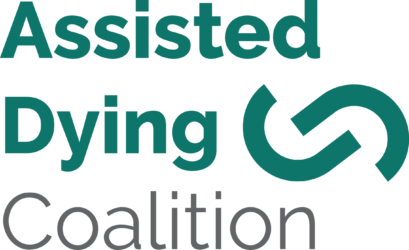The post High Court refuses permission for Paul Lamb’s right-to-die case appeared first on My Death, My Decision.
Today, the High Court has rejected permission for Paul Lamb, a severely disabled man, to challenge the law on assisted dying.
Paul, who is paralysed from the neck down, requires 24-hour care, by a team of seven carers, who wash and feed him and support him in his day-to-day functions.
In rejecting permission for his case, Lord Justice Dingemans and Mrs Justice Laing said that the decisions of previous assisted dying cases provided weighty reasons to justify the current ban on medically assisted dying.
Paul, who is a member of the campaign group My Death, My Decision, argues the current law – which prohibits any assistance under threat of up to fourteen years’ imprisonment – breaches his human rights by discriminating against those who are unable to end their life due to a disability.
He will now have the opportunity to appeal the decision to the Court of Appeal.
According to the UK Assisted Dying Coalition, more than one person a week now travels to Switzerland from Britain for a legal assisted death, which costs around £10,000.
In 2014, alongside Jane Nicklinson, the widow of locked-in sufferer Tony Nicklinson, the former builder from Leeds lost a case before the UK Supreme Court, which had argued the current law breached the right to a private life of those in his position.
However, the Supreme Court held that Parliament must be afforded an opportunity to debate the issue, before the courts decided whether to declare the current law incompatible with Paul’s human rights and those who find themselves in a similar position.
Robert Ince, a spokesperson for the campaign group My Death, My Decision said:
‘We are extremely disappointed that the courts have once again failed to support the human rights of Paul and give hope to many like him who suffer intolerably.
New evidence from progressive countries including Canada has demonstrated that a transparent and robust set of safeguards is the best way to protect everyone, and that compassion need not come at the expense of protecting others. Nearly 90% of the public now believe adults facing incurable suffering deserve to be treated with respect, dignity, and compassion – but this cannot happen until the law changes.
We will continue to support Paul in his fight against this manifestly unjust law.’
About My Death, My Decision
My Death, My Decision is a grassroots non-profit that campaigns for a balanced and compassionate approach to assisted dying in the UK. We believe that everyone deserves access to excellent palliative care but that adults of sound mind, who are either terminally ill or facing incurable suffering, should have the right to a peaceful, painless, and dignified death.
Unlike some right-to-die organisations, we don’t believe that the right to control the manner and timing of your own death should be restricted to those with six or fewer months left to live. Through the work of our members, supporters, patrons, and activists we help to broaden the public debate on assisted dying and seek to secure changes in the law.
Read more about how nearly 90% of the public support an inclusive change in the law.
Read more about how one Briton a week now ends their life in Switzerland.
Read more about My Death, My Decision’s campaign for an inclusive change in the law:
